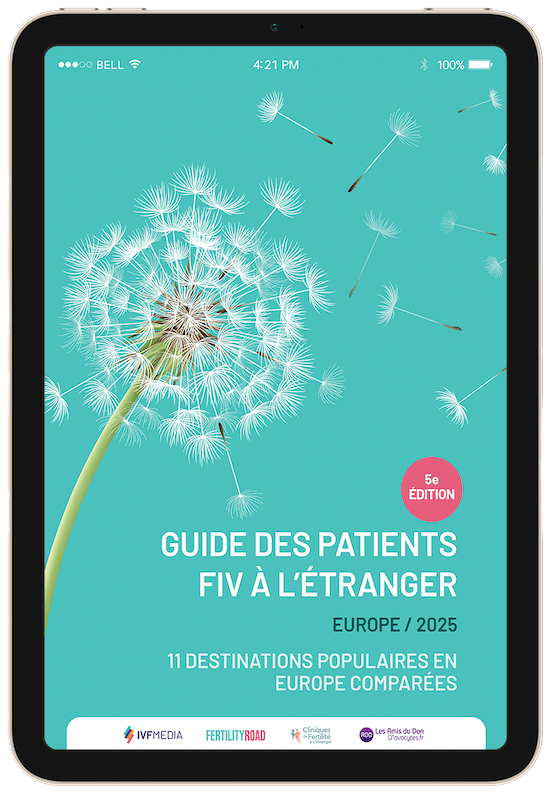What’s Stopping You From Going Abroad for IVF Treatment?

If you are trying for a baby and having difficulties you will no doubt be tuned to any news about fertility treatments. If you live in England and are seeking fertility treatment on the NHS you will have heard about the proposed recent cuts to fund fertility treatment. This is in contrast to Scotland where three cycles are funded for those eligible. Fertility Network UK is voicing its concerns about the proposals in England. The situation has gotten worse over time and it is not the first time we’ve heard that fertility treatment is expendable in order to save money. It leaves potential parents in a worse state than ever in terms of access to fertility treatment.
We’ve been involved in some research with Fertility Network UK to understand why people choose to go abroad for IVF and why some don’t. Clearly the lack of funding and cuts to services is pushing people to seek IVF treatment in private clinics. But it is also pushing people to go abroad as we’ve previously shown that it can be up to 50% cheaper to go overseas for IVF treatment. But regardless of the cost saving, there are some reasons which put some people off from the overseas option. We wanted to understand what these reasons were.
What’s stopping you from going abroad for IVF?
There are a few explanations for why people do not want to travel abroad and some might ring true with you.
1. Travel
From our research the main reason (45% of respondents to our survey) is the inconvenience of travelling. Booking time off from work and booking flights and accommodation is a real hassle. Then there is getting currency and having passports up to date. It can add just another layer of inconvenience. In addition to this is the added stress of being further away from friends and family, and many people cited that as a reason not to go abroad. Of course, this is very understandable. However, fertility clinics abroad know that organising everything is stressful. Not having your support network is difficult too. So they try and help patients as much as they can. For example:
- They sometimes provide suggestions for cheap accommodation near the clinic to save you the effort of researching (some hotels have special deals with clinics which is even better).
- Or provide a pick-up service from the airport which is sometimes free depending on the clinic.
- There is usually an overseas patient coordinator who can liaise with you throughout to ensure that you haven’t forgotten anything. They have lots of experience of helping patients from abroad so they know what’s required and how to help. They can also be a good source of support and some evolve into being friends.
2. Language Barrier
Another reason stopping people from going abroad is the perceived language barrier. This is reasonable of course. But the clinics that I know and deal with have an understanding of that issue. It is a question we ask when the clinic joins our website – is there staff who speak English fluently or does the clinic have translators? Certainly the responses we receive show that clinics have usually covered this issue by hiring of staff who speak English or French or Italian etc. For other less common languages there are usually translators. Language should not be an issue in most European clinics.
3. Lack of regulations
Another barrier was the perceived lack of regulations. 31% of respondents said that a lack of regulation in clinics abroad was a barrier for them. In the UK the Human Fertilisation and Embryology Authority (HFEA) regulates all fertility clinics. This means that without a licence from the HFEA, no clinic can practise. The HFEA will inspect a clinic, interview its staff, analyse documentation and a whole host of other things before it will issue a licence. As a result, we all feel quite safe and reassured. However, it’s not just the UK which has this sort of regulatory body. Many European countries have a similar body which will inspect clinics and do similar investigations before issuing a licence to practise. We have detailed these on our information pages about each country.
Some overseas clinics I have visited have lamented about the detail and rigor of these inspections. How every tiny detail is explored from the physical setup of the clinic to detail on where their equipment is sourced from. I can’t vouch for every country but certainly there appears to be good regulatory rigor in place in many countries. Furthermore, although not having any enforceable power, there is an organisation in Europe which oversees all fertility treatments. This is the European Society of Human Reproduction and Embryology (ESHRE) and most clinics will submit their results to ESHRE and follow their best practices.
4. Success rates are not published anywhere
About 21% of respondents were also wary about going abroad due to lack of access to fertility success rates. In the UK, the HFEA provides access to the IVF success rates of every clinic. Whilst it is never a good idea to compare clinics, it does provide full transparency. It is the case that other European countries do not offer the same level of visibility. The majority of clinics do send their success rates to ESHRE but this data is not accessible to the public. On a country by country basis, I have only seen Spain show a similar level of visibility although it is not very user friendly data (in my opinion). It would be progress to see every country in Europe be more public about their results. Most clinics publish their success rates online, but there is no common template being used which means that clinics may pick and choose what to publish. If you really want to know the success rates from a particular clinic, the best advice is to be really specific. For example, “success rates for IVF for a woman of between 39-44 years transferring one embryo “. If you really want to compare clinics (and it shouldn’t be the only thing you use to compare) that is probably the best way to get the data you need.
5. Does cheaper mean the quality of treatment will be worse?
21% of respondents raised this as a concern. Our previous blogs on this topic about IVF costs have shown that fertility treatment can be up to 50% cheaper abroad compared to the UK. Actually, the success rates abroad are just as good as those at home. Of course you have to consider how many embryos clinics transfer as that has an impact on results. However, even so, the clinics success rates are comparable to the UK. Having visited a few of the clinics on my website, I can see that the quality of the laboratories and treatment rooms are very high. Although I have never had treatment, I would assume that if a particular clinic was terrible at what it does it would soon be known via chat on forums. There would also be enquiries from the licensing body where they submit their data. So I don’t believe short cuts are taken to cut costs, things just aren’t as expensive in the Czech Republic, Greece etc. For more reviews, see our post IVF in Greece – Reviews and Best IVF Clinics.
It’s a huge decision to consider the option of going abroad for treatment and you may have recognised some of the reasons for not going. It was interesting for us to understand the reasons for not going abroad and I’m sure the IVF clinics in Europe and beyond have a great interest to know too.



